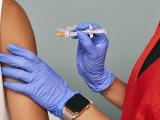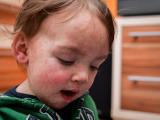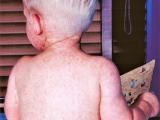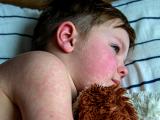Feb 22, 2012
With provider help, flu vaccination in pregnant women rose in 2009-10
Higher percentages of pregnant women received influenza vaccine in the 2009-10 season than in previous seasons, thanks in large part to provider efforts amid the 2009 H1N1 pandemic, according to survey results released by the US Centers for Disease Control and Prevention (CDC) today. Both the trivalent seasonal flu vaccine and monovalent pandemic H1N1 (pH1N1) vaccine were recommended for pregnant women that season, the CDC notes in an article in Morbidity and Mortality Weekly Report. The authors estimated vaccine coverage in 29 states by analyzing data from the Pregnancy Risk Assessment Monitoring System (PRAMS), an ongoing population survey of maternal behaviors and experiences before, during, and after pregnancy. The study focused on women who gave birth from September 2009 through May 2010. The estimated median coverage for seasonal vaccine was 47.1%, ranging from 26.1% in Florida to 67.9% in Minnesota. For pH1N1 vaccine, the median coverage was 40.4%, with state levels ranging from 21.9% in Mississippi to 63.3% in Vermont. Coverage was much higher in women whose medical providers offered or recommended the vaccine than in those whose providers did not: 62.1% versus 14.3% for seasonal vaccine and 53.1% versus 4.9% for pH1N1. "The proportion of vaccination coverage that could be attributed to provider offer or recommendation was 74% for seasonal and 89% for pH1N1," the report states. Like vaccination, the prevalence of provider recommendations for vaccination varied significantly by state.
Feb 24 MMWR article
Lassa fever kills 40 in Nigerian outbreak
Nigeria has reported 397 cases (87 confirmed) and 40 deaths from an outbreak of Lassa fever in the past 6 weeks, according to an All Africa story yesterday. Minister of Health Prof. Onyebuchi Chukwu said that two of the fatal cases were in doctors and four in nurses. Chukwa said doses of antiviral drugs and rapid response teams have been sent to the affected states. "Nigeria has the capability to diagnose Lassa fever and all the cases reported so far were confirmed by our laboratories," he said. Lassa virus can cause hemorrhagic fever and attacks the liver, nervous system, spleen, and kidney.
Feb 22 All Africa story
Judge grants FDA injunction against Pennsylvania raw-milk producer
A federal court has granted the US Food and Drug Administration (FDA) a permanent injunction that prevents Daniel L. Allgyer and his Rainbow Acres Farm of Kinzers, Pa., from distributing unpasteurized milk and raw-milk products for human consumption across state lines, according to an FDA news release yesterday. US District Judge Lawrence F. Stengel, of the Eastern District of Pennsylvania, also ruled that Allgyer's participation in a so-called "private buying club" does not shield him from federal regulations, and that his "cow share" agreements are a subterfuge for sales of raw milk. Though raw-milk sales are legal in Pennsylvania, Allgyer also violated federal law by not labeling raw-milk containers sold to consumers, according to the FDA. This week a CDC study showed that raw-milk products are 150 times more likely to cause a foodborne illness outbreak than are pasteurized milk products.
Feb 22 FDA news release
Feb 21 CIDRAP News story on CDC study
WHO urges vaccination after Afghan measles outbreak kills 20
The World Health Organization (WHO) is urging vaccination of all Afghan children after a measles outbreak. Twenty children have died from measles and pneumonia in the western provinces of Ghor and Baghdis, according to a United Nations (UN) press release yesterday. More than 6,200 patients have been treated at five temporary clinics in the two provinces, the agency said, and more than 3,600 measles vaccinations have been administered. "This outbreak confirms that the overall immunization coverage remains low, with disparities throughout Afghanistan, particularly between rural and urban areas, secure and insecure zones," the WHO said.
Feb 22 UN press release



















